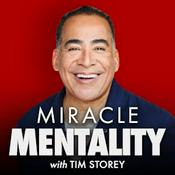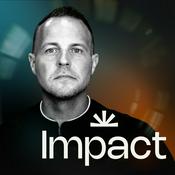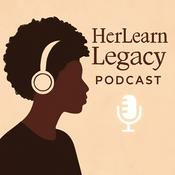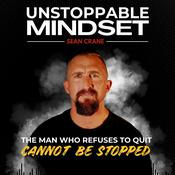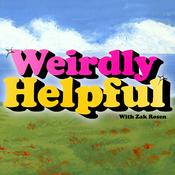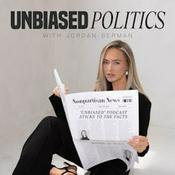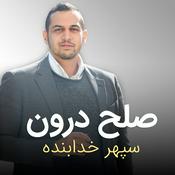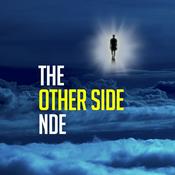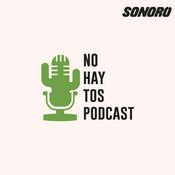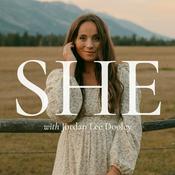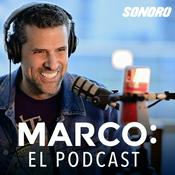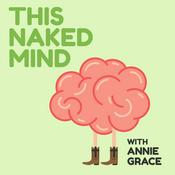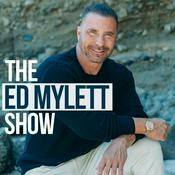Available Episodes
5 of 35
- Defending Mother Earth from The Doctrine of Christian Discovery #NoKingsStanding on the shores of Onondaga Lake—the birthplace of democracy in North America—Haudenosaunee knowledge keepers share timeless wisdom about our relationship with Mother Earth. This powerful conversation begins with Jake Edwards reciting the Thanksgiving Address, a profound expression of gratitude that acknowledges the interconnected responsibilities of all beings."When you look at the responsibilities that were given to us with the original instructions of humans," Edwards explains, "the details of environmental justice are all in there." The Onondaga Nation has maintained these teachings despite centuries of attempted erasure, and they offer crucial insights for our current environmental crisis.Faithkeeper Oren Lyons reminds us that the Great Tree of Peace—a thousand-year-old teaching symbolized in the Haudenosaunee Confederacy Belt—represents the foundation of true democracy, one that extends rights and consideration to all living beings, not just humans. "World peace is the only solution," he states, warning that climate change is accelerating while leaders focus on war instead of survival.The conversation unfolds against the backdrop of colonial history, as participants explore how the Doctrine of Christian Discovery created legal frameworks that justified land theft and attempted to sever indigenous peoples from their connection to the earth. Now, ironically, many institutions built on these foundations are looking to indigenous knowledge for environmental healing, often without addressing their complicity in displacement.Most powerfully, the speakers offer clear direction for moving forward: "If you want to start healing," Edwards states, "you start with where it started—taking the land. So give it back." He draws direct connections between environmental restoration projects like dam removal on the Klamath River and the return of land to indigenous stewardship.Listen to this essential conversation about gratitude, responsibility, and what it truly means to live in right relationship with the earth and each other. Share these teachings widely—our collective future may depend on it.Support the showView the transcript and show notes at podcast.doctrineofdiscovery.org. Learn more about the Doctrine of Discovery on our site DoctrineofDiscovery.org.--------2:09:26
- Teaching Uncomfortable History: The Doctrine of DiscoveryHolly Rine, associate professor of history at Le Moyne College, offers a compelling perspective on teaching the Doctrine of Discovery at a Jesuit institution. With remarkable candor, she shares her own journey from unfamiliarity with this history to becoming an advocate for institutional honesty about colonization's ongoing impacts.The conversation explores how critical examination of historical texts like the Jesuit Relations reveals their propagandistic nature. What many accept as straightforward historical accounts were actually carefully crafted narratives designed to secure European funding for colonial projects. Rine encourages her students to question these sources by asking "who wrote them, for whom, and to what purpose?" This approach transforms passive learning into active critical thinking about how history shapes our present.Particularly fascinating is the discussion of Onondaga Lake as both sacred space to the Haudenosaunee and contested territory through colonization. Rine's work examines how different cultural perspectives view the lake – as either a sacred gathering place or merely as an economic resource. This dichotomy continues today with debates about development projects like Micron's semiconductor facility, drawn to Syracuse largely because of its abundant water resources. The environmental degradation of the lake stands as a physical manifestation of colonial attitudes toward land and water.The podcast reveals how Indigenous knowledge systems challenge conventional academic approaches. While Western historians rely heavily on written documents, the Haudenosaunee preserve history through oral tradition, wampum belts, and a relational understanding with the natural world. These alternative ways of recording history offer transformative perspectives on our relationship with the environment and each other – particularly relevant as we face climate change and environmental crisis.As America approaches its 250th anniversary, this episode presents a timely opportunity to reassess the origins of American democracy. The Haudenosaunee Great Law of Peace provided a model of democratic governance that included women and non-human beings in decision-making processes centuries before the Constitution was drafted. By acknowledging these influences and confronting uncomfortable truths about our shared history, we open possibilities for healing relationships with both the land and its original stewards.Support the showView the transcript and show notes at podcast.doctrineofdiscovery.org. Learn more about the Doctrine of Discovery on our site DoctrineofDiscovery.org.--------53:47
- S05E07: Indigenous Wisdom for Planetary Healing with Yuria CelidwenYuria Celidwen, a Nahua and Maya scholar and UC Berkeley postdoctoral researcher, shares how Indigenous wisdom offers pathways for collective healing beyond colonial mindfulness practices that prioritize individual benefit over community wellbeing.• Identifying as a "truth bearer" from Maya tradition, Celidwen bridges Indigenous epistemologies with academic research• The mindfulness movement has colonial roots, extracting Eastern practices while severing them from community responsibility• Indigenous sciences engage in "intersubjective dialogue" with subjects rather than treating them as inert objects• The doctrine of discovery established belief systems of domination that continue to impact Indigenous peoples• Historical distortions by missionaries and colonists undermined Haudenosaunee matrilineal systems and traditional practices• Indigenous knowledge uses metaphor, poetry, and ceremony to express complex scientific understanding• Young people increasingly recognize the value of Indigenous perspectives in addressing climate emergency• Transformation requires composting old narratives of purity and domination to create new ways of being• We're never alone in this work - we carry ancestral wisdom and plant seeds for future generationsFind Yuria Celidwen book "Flourishing Kin: Indigenous Wisdom for Collective Well-Being" to discover Indigenous-inspired practices for reconnecting with the more-than-human world.Support the showView the transcript and show notes at podcast.doctrineofdiscovery.org. Learn more about the Doctrine of Discovery on our site DoctrineofDiscovery.org.--------48:50
- S05E06: Rethinking Our Values: Indigenous Values for a Sustainable FutureThis episode explores the vital need for a value change rooted in indigenous perspectives, particularly the teachings of the Haudenosaunee. Listeners are invited to reflect on how our current monetary-driven worldview is unsustainable and how adopting a more relational and respectful way of interacting with the Earth can pave the way for a more sustainable future.Themes • Discussion of the urgency of changing our economic values • Insights from the Haudenosaunee about the interconnectedness of life • Historical context of the "Basic Call to Consciousness" • Exploration of leadership through indigenous philosophies • Introduction of the Rights of Nature movement • Presentation of the Universal Declaration of the Rights of Mother Earth • Importance of decolonizing narratives and changing perspectives • Emphasis on our responsibility and connection to the Earth • Reflection on the positive potential in adopting indigenous values If you liked this episode, please check out our website at podcastdoctrineofdiscovery.org for more information and, if you like this episode, review it on Apple, Spotify, or wherever you listen to podcasts.Support the showView the transcript and show notes at podcast.doctrineofdiscovery.org. Learn more about the Doctrine of Discovery on our site DoctrineofDiscovery.org.--------50:27
- S05E05: Reimagining Legal Frameworks: Protecting Native American Sacred Sites and SovereigntyWhat if the key to protecting Native American sacred sites lies not within the confines of existing religious freedom laws, but in a reimagined legal strategy? Join us as we engage with Michael McNally, the insightful author of "Defend the Sacred: Native American Religious Freedom Beyond the First Amendment." Together, we unravel the complexities of how religious language, despite its colonial roots, can be harnessed to uphold Native American rights. Drawing on the American Indian Religious Freedom Act and the pivotal work of advocates like Suzanne Schoenharjo, McNally suggests a more adaptable interpretation of these laws that could empower Native communities and fortify their battles for sacred land protection.Our discussion takes a profound turn as we examine indigenous treaties and their deeper meanings beyond financial arrangements. By highlighting the Dakota, Lakota, and Little Traverse Band of Odawa lands, we recognize these treaties as living expressions of an inherent bond with nature, advocating for a paradigm shift from ownership to stewardship. The episode delves into the Doctrine of Discovery, inviting indigenous voices to reshape the narrative and affirm the interconnectedness of all life. Through these conversations, we seek to bridge legal frameworks with universal principles, aiming for a holistic appreciation of indigenous perspectives.The exploration doesn't stop there; we navigate the enduring impact of colonial legacies on Native sovereignty and governance. From the contentious history of the Bureau of Indian Affairs to the inspiring traditional governance of nations like the Onondaga, we uncover stories of resilience and hope. As we touch on legal resistance, landmark cases, and international law strategies like the UN Declaration on the Rights of Indigenous Peoples, we emphasize the persistent struggle and triumph of Native nations. With reflections on contemporary resistance movements and the challenges of safeguarding sacred land, the discussion is both a testament to Native perseverance and a call to honor their enduring wisdom.Support the showView the transcript and show notes at podcast.doctrineofdiscovery.org. Learn more about the Doctrine of Discovery on our site DoctrineofDiscovery.org.--------1:17:01
More Education podcasts
Trending Education podcasts
About Mapping the Doctrine of Discovery
The Mapping the Doctrine of Discovery podcast, hosted by Philip P. Arnold and Sandy Bigtree (Mohawk Nation), critically examines the historical and ongoing impacts of the Doctrine of Christian Discovery. Rooted in 15th-century papal edicts, this doctrine provided theological and legal justification for European colonialism, the seizure of Indigenous lands, and the subjugation of non-Christian peoples. The podcast explores how these principles became codified in U.S. law, from Johnson v. M’Intosh (1823) to Sherrill v. Oneida (2005), and continue to underpin contemporary legal, religious, and corporate frameworks. Featuring discussions with scholars, legal experts, and Indigenous leaders, the series sheds light on how this doctrine fuels environmental destruction, economic exploitation, and cultural genocide while also highlighting Indigenous resistance and calls for justice, land restoration, and the repudiation of these colonial structures. https://podcast.doctrineofdiscovery.org/
Podcast websiteListen to Mapping the Doctrine of Discovery, Becoming UnDone and many other podcasts from around the world with the radio.net app
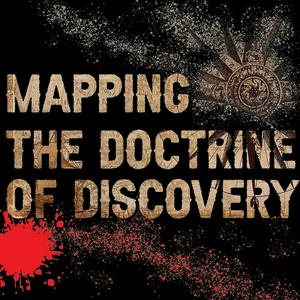
Get the free radio.net app
- Stations and podcasts to bookmark
- Stream via Wi-Fi or Bluetooth
- Supports Carplay & Android Auto
- Many other app features
Get the free radio.net app
- Stations and podcasts to bookmark
- Stream via Wi-Fi or Bluetooth
- Supports Carplay & Android Auto
- Many other app features


Mapping the Doctrine of Discovery
Scan code,
download the app,
start listening.
download the app,
start listening.


